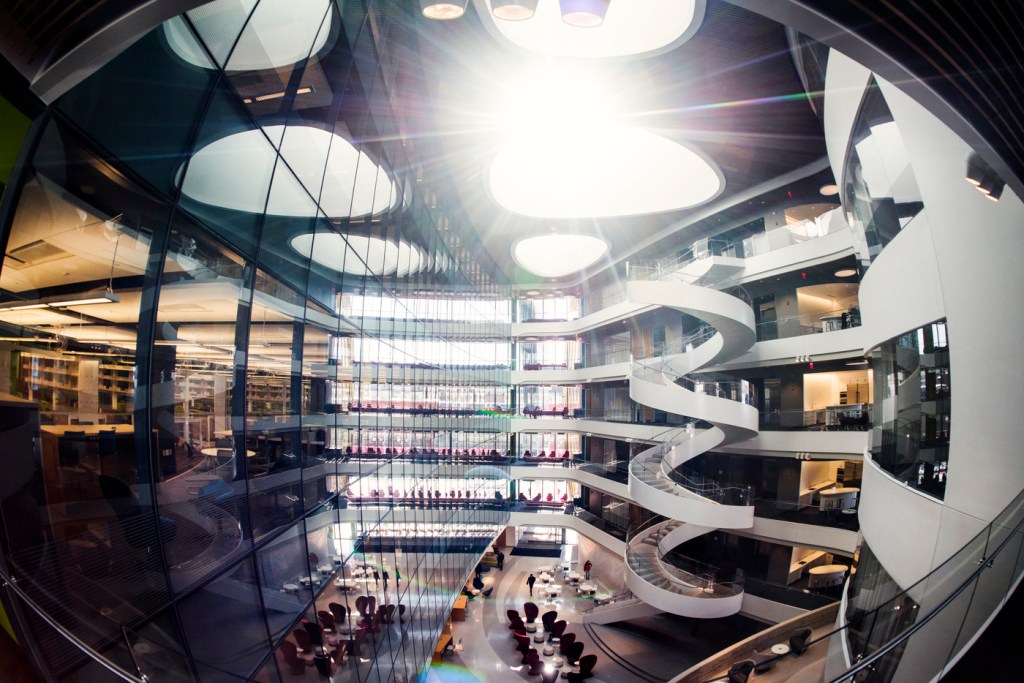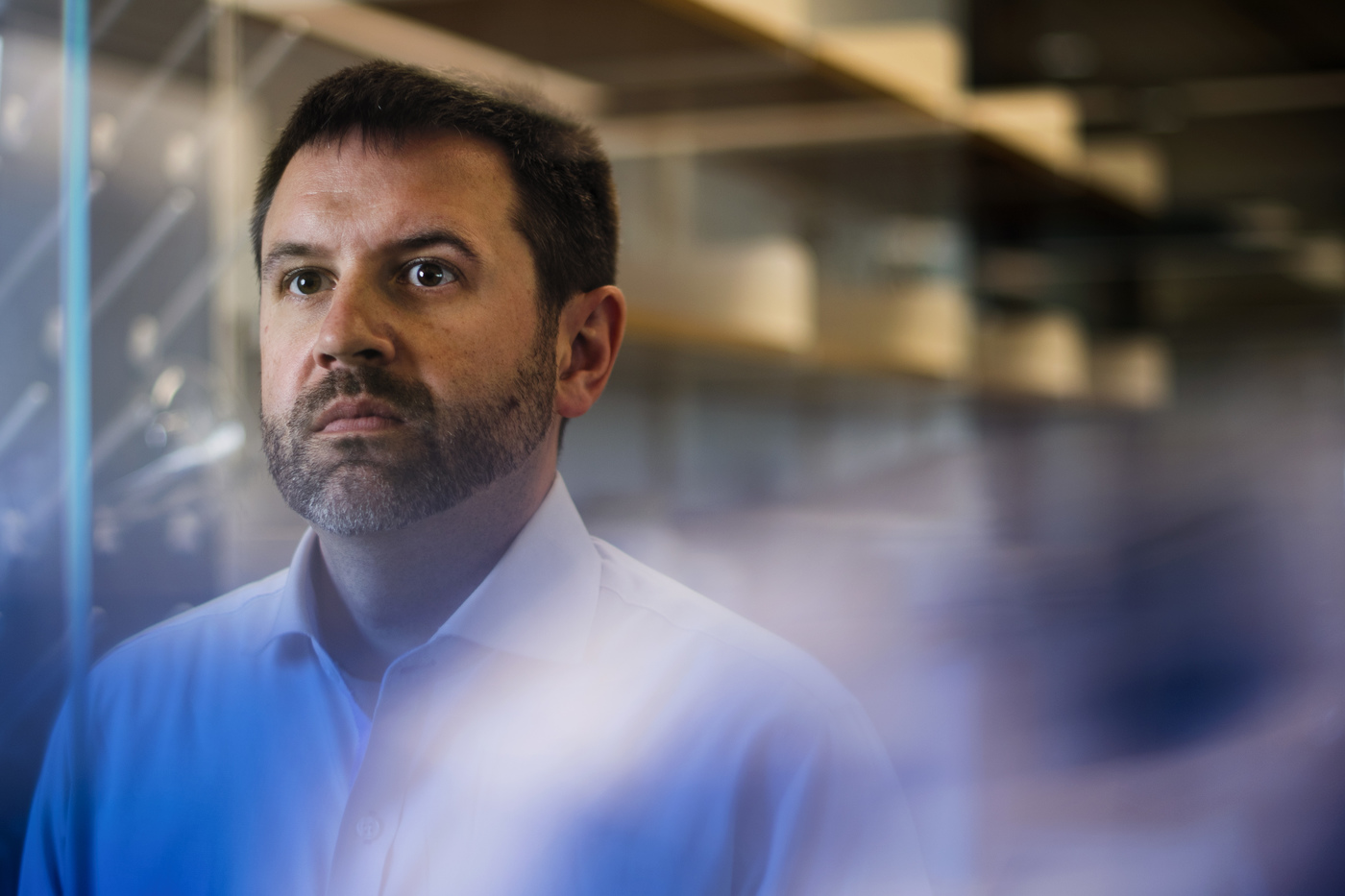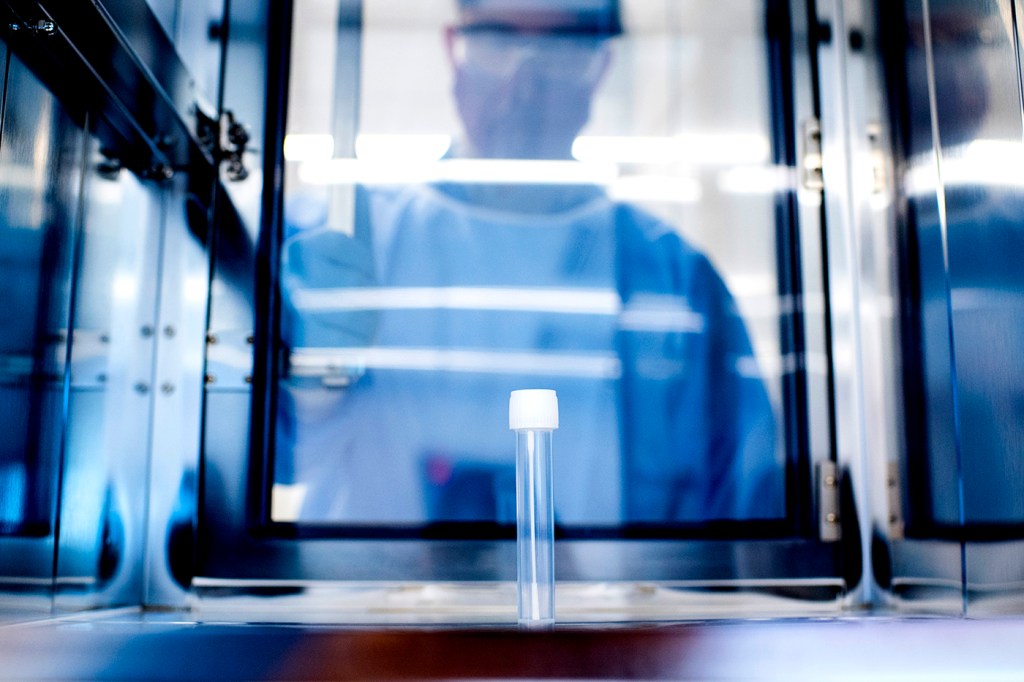Northeastern’s COVID-19 test lab now processes pool tests for K-12 schools

*Published on April 1, 2021
Northeastern’s Life Sciences Testing Center is now processing COVID-19 samples for K-12 schools across Massachusetts.
As the commonwealth strives to bring students of all ages back into the physical classroom safely this spring, Massachusetts has launched a coronavirus testing program in public K-12 and special education schools. It’s the first statewide program like this in the country, and Northeastern’s lab is becoming a vital part of that effort. The university has partnered with Ginkgo Bioworks, the Boston-based biotech company contracted by the state to provide testing services to approved schools.
“This is going to be an important strategy to keep the schools open and keep them safe,” says Jared Auclair, director of Northeastern’s testing lab. “It’s basically mimicking the higher education model at the primary schools.”

There is one notable exception: While the university tests samples from individuals separately, the K-12 samples are pooled, with several from the same classroom tested together in one batch. That leverages the natural pods formed by children sharing a classroom to reduce the expense of testing to at least a tenth of the cost of an individual PCR test and makes it possible to include many more people.
“Pooled testing gives schools a simple-to-implement protocol to test every student, every week, and it’s incredible to see the Massachusetts plan adopted across the country as communities recognize what we’ve done here,” says Jason Kelly, CEO and co-founder of Ginkgo.
Like in Northeastern’s own system, testing K-12 students helps prevent the spread of COVID-19 in the school and broader community. The students in participating schools are tested once a week. If a pool comes back positive, the school’s follow up testing protocol kicks in. Typically, the individuals whose samples were in that grouping are given separate diagnostic rapid tests. The individuals that test positive begin isolation. Contact tracing also ensues. The rest of the group can return to school, so long as they were not identified as close contacts.
“As communities across the Commonwealth return to in-person learning over the coming months, testing will be a critical tool to monitor viral spread and build confidence among students, teachers, and families,” Kelly says. “Everybody’s health is connected, and we’re so grateful to Northeastern for the technical and organizational excellence they’ve demonstrated in this effort.”
Ginkgo Bioworks handles all of the logistics with the schools through the company’s public health and biosecurity effort, Concentric by Ginkgo. They train school administrators, school nurses, and teachers to set up the testing program. The school staff is also equipped with a digital portal on which they order testing kits (paid for by the Commonwealth of Massachusetts).
Test kits contain everything a nurse or teacher needs: barcoded tubes, barcode scanners, swabs, and any kind of pre-paid return packaging that they might need.
On test day, the teacher or nurse hands out a swab to every kid in the class, they pull down their masks just below their noses, swish the swab around inside their nostrils as instructed, then drop the swab in a tube one-by-one. The barcoded sample tube is then sent via courier or FedEx to a lab, like Northeastern’s Life Sciences Testing Center in the university’s Innovation Campus at Burlington, Massachusetts.
Right now, about 1,200 pooled samples from K-12 public schools are tested in Northeastern’s lab each week, with an average of 9 swabs per test. For comparison, the lab runs about 5,000 samples each day for Northeastern students, staff and contract employees, and has the capacity to process up to 15,000 samples per day.
Auclair hopes to receive between 5,000 and 8,000 samples per day from Ginkgo as the program ramps up. “We want more,” he says.
“This is my passion these days,” says Auclair, a parent himself. “I don’t want to get kids back to school and then have to take them back out.”
Establishing a testing program in K-12 schools could also be key to returning society to normal more broadly. With students able to attend schools in-person safely, childcare pressures on parents will lessen.
“This population is going to be the last to be vaccinated,” Auclair says. Vaccine trials for young children have just begun, so it may not be until 2022 that K-12 students can be vaccinated. “So it’s super important, not only for this school year, but for next.”
For media inquiries, please contact media@northeastern.edu.






